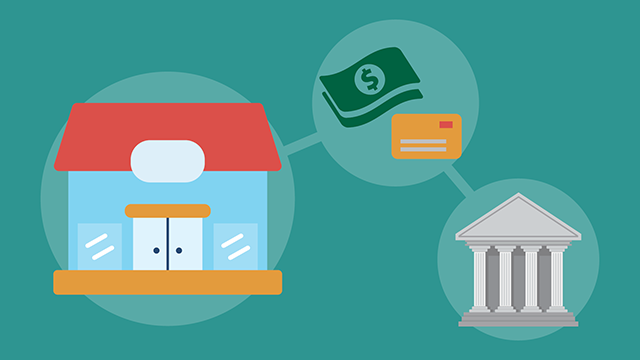
Power washing businesses rely heavily on equipment—and let’s face it, professional-grade gear isn’t cheap. Whether you’re buying your first commercial pressure washer or expanding your fleet with water tanks and trailers, financing can help you scale without draining your cash.
But here’s the key: You don’t want to rely solely on personal credit. Setting up business credit not only protects your personal finances, but also helps you qualify for better loans, build credibility, and secure better vendor terms.
Let’s walk through how to set up business credit and finance your equipment the smart way. 💼📈
Why Business Credit Matters 💳📊
Business credit is a score and history tied to your business—not your personal credit profile. Establishing it:
✅ Separates personal and business finances
✅ Opens the door to larger credit lines and better terms
✅ Builds your company’s financial reputation
✅ Makes it easier to get equipment leases, fuel cards, or business credit cards
Most importantly, it helps you grow without risking your personal assets. 🛡️
Step 1: Form a Legal Business Entity 🧾🏢
To start building business credit, you need an actual business—not just a name.
✅ Register an LLC or corporation (LLCs are often best for small operators)
✅ Get an Employer Identification Number (EIN) from the IRS
✅ Open a business checking account using your EIN and legal business name
💡 Bonus: You’ll also appear more credible to customers and vendors.
Step 2: Get Listed with Business Credit Bureaus 🗃️
There are three main business credit bureaus:
- Dun & Bradstreet (D&B) – Create a D-U-N-S Number (free)
- Experian Business
- Equifax Business
Some of these bureaus will build a file for you automatically—but registering proactively helps speed things up and ensures accuracy. 📝
Step 3: Open Business Accounts That Report Credit 🧾💼
You need vendors or creditors who report your payment history to build credit. Start with:
🛠️ Net-30 vendor accounts
Examples: Uline, Grainger, Quill
– Buy small business supplies and pay in full within 30 days
– These early accounts help you establish trade credit history
💳 Business credit cards
– Look for cards that report to business bureaus (like Capital One Spark, Chase Ink)
– Keep usage low and pay off monthly to build a strong score
🚚 Fuel cards or fleet cards
– If you operate vehicles, cards like WEX or Shell Business help build history and simplify fuel management
Step 4: Lease or Finance Equipment Instead of Paying Cash 🧰💸
Financing your gear can be smarter than paying upfront, especially if the return on investment (ROI) is high.
Common options:
🔹 Equipment Leasing
– Lower upfront cost
– You rent equipment for a period, then return or buy it
– Ideal if you need to preserve capital or test services
🔹 Equipment Financing
– You buy the equipment with a loan and pay monthly
– Often comes with fixed interest rates and predictable payments
– Equipment acts as collateral (easier to qualify for)
🔹 Section 179 Deduction (U.S. only)
– Lets you deduct 100% of qualifying equipment purchases in the year of purchase
– Even if financed! Great tax tool for end-of-year buys
💡 Pro Tip: Always compare total repayment cost—not just the monthly amount.
Browse Amazon Here For Commercial Pressure Washers And Accessories
Step 5: Build a Relationship with Local Banks and Credit Unions 🏦🤝
Don’t just rely on big-name lenders. Local institutions often have more flexible terms, better customer service, and small-business-focused programs.
🏢 Open a business checking/savings account
💬 Speak with a loan officer about financing options
📄 Prepare basic documents: revenue, expenses, and growth plan
Over time, building trust with a bank can lead to higher credit limits and better interest rates.
Step 6: Pay EVERYTHING On Time or Early 🕒✅
Your business credit score depends on your payment behavior. A few missed or late payments can tank your profile.
📅 Set auto-pay or calendar reminders for all vendor and credit card bills
📈 Aim to pay early whenever possible—many vendors reward early payment with higher scores or credit limits
📉 Avoid maxing out your business credit cards—it can hurt your credit utilization score
Consistency is your greatest asset here. 🧠
Step 7: Monitor Your Business Credit Reports 🔍📊
Just like personal credit, your business credit needs to be monitored.
📲 Use services like Nav, CreditSignal, or Experian Business
⚠️ Check for errors, duplicate accounts, or signs of fraud
📈 Track your score as you grow—vendors and lenders will
Being proactive means you’re ready when opportunity knocks. 💼
Common Mistakes to Avoid ❌
🚫 Using personal credit for all business purchases long-term
🚫 Mixing personal and business finances in the same bank account
🚫 Not checking if vendors report your payment history
🚫 Taking on unnecessary debt without a clear ROI
🚫 Ignoring your business credit file until you need a loan
Avoid these, and your business will build credit faster and more safely. 🧽
Final Thoughts 💡
Setting up business credit and financing equipment the smart way isn’t just about borrowing money—it’s about building leverage. Leverage to grow, to invest, and to protect your personal financial future.
With a solid credit profile and smart financing tools, your power washing business will be equipped not just to survive—but to thrive and scale. 🧼🏦📈
Browse Amazon Here For Top Rated Power Washers And Accessories






